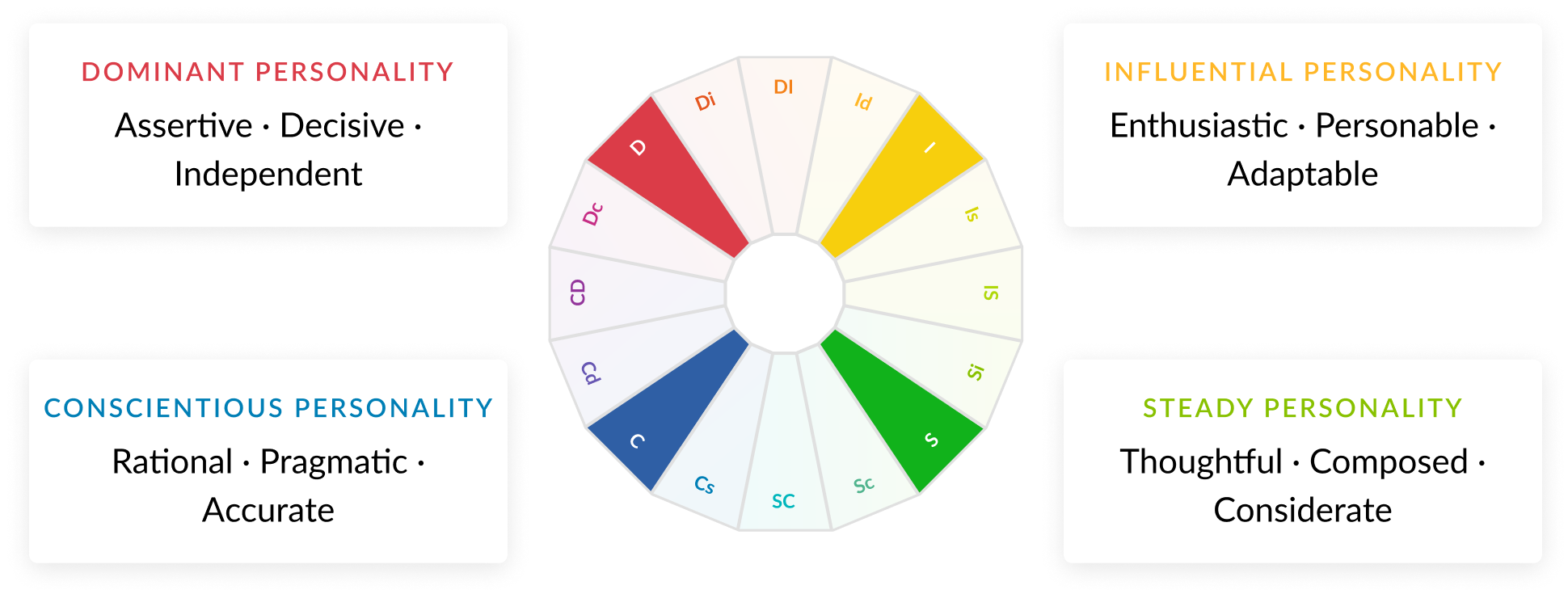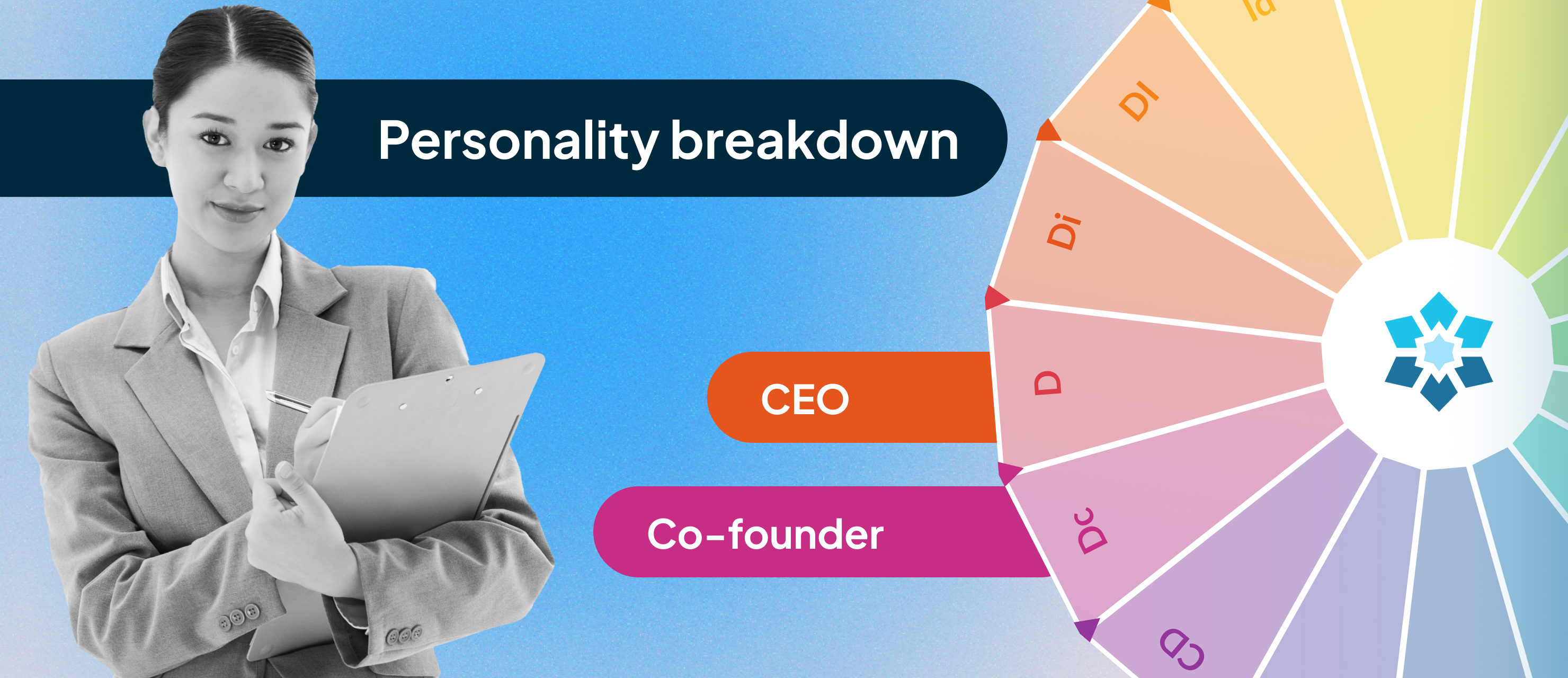
In today's global business landscape, the ability to understand and adapt to cultural differences has become a critical factor for achieving success in cross-cultural sales. As businesses expand their reach beyond national borders, they encounter diverse markets with unique cultural norms, values, and communication styles. Failing to recognize and adapt to these differences can lead to miscommunication, misunderstandings, and ultimately, lost business opportunities.
It’s important to mention that these are generalizations, and not every prospect from each region will be the same. However, this should give you a jumping-off point as you prepare your pitch.
By proactively embracing these cultural differences, sales professionals can bridge the gaps between different cultural contexts, build stronger connections with customers, and effectively tailor their sales strategies to meet the specific needs and expectations of each target market—all while fostering long-term relationships and achieving sales success in diverse global markets.
But this poses a challenge: as a sales professional, how can you best pitch to different cultures when you’ve never met or interacted with international prospects? In this blog, we’ll explore the cultural differences of top business regions around the world, provide dos and don'ts for sales interactions, highlight prominent DISC types in specific regions, and discuss how you can use personality intelligence platforms like Crystal to set yourself up for sales success. Let’s dive in.
Understanding DISC for Global Sales Teams
Before we break down the general differences between different cultures, it’s crucial to have an understanding of the DISC framework—and how it can help you understand your buyer, build trust, and close sales.
Did you know that more than 70% of potential buyers feel frustrated when their experience is impersonal? Using specific language and messaging tactics to fit an individual’s personality type can make a huge difference in your initial pitch. Crystal uses the DISC model to classify personalities into a few categories that we refer to as D (dominant), I (influential), S (steady), and C (conscientious). This framework provides valuable insights into behavioral tendencies, communication preferences, and decision-making patterns.

Below is a breakdown of common personality traits within each of the categories in DISC, and what kinds of language would likely resonate with each:
Dominance (D)
Individuals with a dominant personality type are often assertive, results-oriented, and driven by challenges. They tend to be decisive, direct and focused on achieving goals. In sales, D types value efficiency and take charge of situations. They respond well to direct communication and appreciate clear benefits and bottom-line results.
Influential Types (I)
Prospects with an influential personality type are sociable, persuasive, and enthusiastic. They enjoy interacting with others, have excellent communication skills, and are skilled at building relationships. I-Types thrive in sales environments that involve social interactions, networking, and relationship-building. They respond well to personalized approaches, recognition, and collaboration.
Steady Types (S)
Individuals with a steady personality type are patient, reliable, and supportive. They value harmony, stability, and consistency. S types prefer cooperative and collaborative environments and prioritize long-term relationships. In sales, they appreciate trust-building, clear expectations, and reassurance.
Conscientious Types (C)
Those with a conscientious personality type are detail-oriented, analytical, and focused on accuracy. They value quality, precision, and logical decision-making. C types prefer structured environments and are diligent in their approach to sales. They respond well to evidence-based information, data-driven solutions, and thorough explanations.
Each DISC type has distinct preferences and communication styles. Understanding these differences allows you to tailor your approach to each individual—building rapport, enhancing communication, and increasing the likelihood of success.
Quick Tips on Cultural Differences in Business and Sales Across the World
No two prospects are alike—regardless of where they might be from. However, there are some distinct differences in the ways that business is conducted around the globe. Having a basic understanding of these differences can help you prepare to meet your prospect with confidence and respect. Below are some key differentiators in multiple cultures across the globe:

Pitching to Prospects in the Middle East
In the Middle East, relationship-building and establishing trust are crucial. Negotiations and price discussions are customary.
- Do: Build personal connections and demonstrate expertise and professionalism.
- Don’t: Rush through the pitch or show signs of disrespect.
 Pitching to Prospects in China
Pitching to Prospects in China
In Chinese culture, relationship-building is essential. Decision-making may involve a group consensus, so patience and building trust over time is key. Face-to-face meetings and socializing outside of business hours can help establish relationships.
- Do: Emphasize personal connections.
- Don’t: Disrespect hierarchy.
 Pitching to Prospects in Japan
Pitching to Prospects in Japan
Japanese culture places a strong emphasis on protocol and relationship-building. Precision, attention to detail, and demonstrating long-term commitment are valued. A hierarchical approach is common, and respect for seniority is important.
- Do: Expect multiple meetings before finalizing agreements, as decisions are made collectively.
- Don’t: Skim over any details in your pitch.
 Pitching to Prospects in India
Pitching to Prospects in India
Influence plays a significant role in Indian culture. It is important to personalize the approach and showcase how the product or service benefits the community or larger group. Flexibility with schedules and adapting to local customs can also be beneficial.
- Do: Emphasize social connections and create a sense of belonging.
- Don’t: Resist local customs.
 Pitching to Prospects in Germany
Pitching to Prospects in Germany
German culture values efficiency, reliability, and professionalism. Decision-making is often logical and based on facts. It is important to be punctual, well-prepared, and respect the rules and regulations of the business environment.
- Do: Provide data-driven solutions, focus on demonstrating expertise, and present clear instructions.
- Don’t: Disrespect the prospect’s time.
 Pitching to Prospects in Brazil
Pitching to Prospects in Brazil
Brazilian culture emphasizes building personal relationships and engaging in small talk. Flexibility with schedules and a friendly, informal approach is valued. Building trust and rapport is important before moving into business discussions.
- Do: Demonstrate enthusiasm and a genuine interest in the client's life and background.
- Don’t: Rush into your pitch without establishing rapport.
 Pitching to Prospects in France
Pitching to Prospects in France
French culture values intellectual discussions and innovation. Demonstrating creativity and emphasizing the unique aspects of the product or service can be effective. Building trust and credibility is essential.
- Do: Engage in thoughtful conversations, appreciate cultural heritage, and adapt a polished and sophisticated presentation style.
- Don’t: Present a run-of-the-mill pitch.
It’s important to mention that these are generalizations, and not every prospect from each region will be the same. However, this should give you a jumping-off point as you prepare your pitch.
Using DISC to Identify Prominent Personality Types in Specific Regions
Different regions have varying dominant DISC types, which influence communication and decision-making styles. Understanding these preferences can help you adapt your strategies effectively and set yourself up for success.
Below are some tips for adapting your sales approach for the different DISC classifications, paired with regions that are typically associated with each type.
Pitching to D-Types: Middle East, Germany
- Use direct and concise communication.
- Focus on results, efficiency, and leadership qualities.
- Present data-driven solutions with clear benefits.
Pitching to I-Types: India, Brazil, France
- Be friendly, enthusiastic, and open.
- Highlight social connections and emphasize relationships.
- Provide opportunities for collaboration and recognition.
Pitching to S-Types: China, Japan, India, Brazil
- Build trust and rapport.
- Demonstrate stability, patience, and consistency.
- Provide reassurance, clear expectations, and long-term support.
Pitching to C-Types: Japan, Germany, France
- Show attention to detail and precision.
- Provide evidence-based information.
- Address concerns and potential risks proactively.
Not every prospect from Brazil will be an I or S type, and not every German prospect will be a C or D type. However, these generalizations should give you a solid baseline to reference as you prepare your pitch.
Tips for Pitching, Handling Objections, and Negotiating with Each DISC Type
If you want to get even more granular about the personality of your prospect, personality intelligence platforms like Crystal can help you get there. Crystal analyzes publicly available information to identify the natural personality of your prospect and learn what motivates them—starting with your first conversation. Once you know the personality type of your prospect, you can meet them where they are—and set yourself up to build a lasting, mutually beneficial relationship.
Let’s go over some brief tips for pitching, objection handling, and negotiating with each DISC type:
Pitching to Each DISC Type
When pitching to different DISC types, it is crucial to highlight the key benefits that align with their preferences.
- For D-Types, emphasize how your product or service can drive results, increase efficiency, and showcase leadership qualities. Use visuals, data, and testimonials to provide concrete evidence of success.
- For I-Types, focus on the social aspects and highlight how your offering can enhance relationships, provide recognition, and create a sense of belonging. Utilize engaging visuals, storytelling techniques, and collaborative elements in your presentation.
- S-Types value stability and trust, so emphasize how your solution can provide reliability, long-term support, and a sense of security. Incorporate testimonials and case studies that demonstrate the enduring value of your product or service.
- For C-Types, highlight the precision, accuracy, and attention to detail of your offering. Use data-driven visuals, present logical explanations, and provide examples that showcase the thoroughness and reliability of your solution.
Objection Handling for Each DISC Type
When handling objections from different DISC types, it is important to tailor your approach to their specific personality types.
- For D-Types, address objections directly and confidently. Provide evidence of how your product/service can overcome challenges, increase efficiency, and deliver tangible results. Use concise and results-oriented language to demonstrate leadership qualities.
- For I-Types, focus on the social aspects and how your offering can positively impact
relationships and provide recognition. Highlight success stories and testimonials that showcase the positive experiences of others. Use engaging and enthusiastic language to create a sense of excitement and belonging. - For S-Types, address objections with patience and reassurance. Emphasize the stability and reliability of your solution, and demonstrate how it provides long-term support. Incorporate testimonials and case studies that highlight the enduring value and the peace of mind your product/service offers.
- For C-Types, provide detailed and accurate information to address their concerns. Present logical explanations and provide examples that showcase the precision and attention to detail of your solution. Offer documentation, whitepapers, or technical specifications that demonstrate the thoroughness and reliability of your product/service.
Negotiating with Each DISC Type
When negotiating with each DISC type, the key is to understand the underlying motivations and communication styles of the individuals involved, adapt your negotiation approach accordingly, and strive for mutually beneficial outcomes—especially when you’re negotiating cross-culturally.
- For D-Types, engage in direct and confident negotiations. Highlight how your proposal aligns with their goals, drives results, and showcases leadership qualities. Emphasize the value of achieving objectives efficiently and effectively. Be prepared to engage in assertive discussions and focus on win-win outcomes that benefit both parties.
- For I-Types, approach negotiations in a collaborative and social manner. Emphasize the positive impact and recognition that can come from reaching a mutually beneficial agreement. Highlight the potential for building strong relationships and creating a sense of excitement around the negotiation process. Be flexible and open to creative solutions that align with their vision.
- For S-Types, negotiate with patience and focus on building trust and maintaining stability. Highlight the reliability and long-term support that your proposal offers. Emphasize the sense of security and consistency that comes from a successful partnership. Be prepared to address their concerns and demonstrate how your proposal minimizes disruptions and ensures a smooth transition.
- For C-Types, engage in negotiations with a focus on providing detailed information and logical explanations. Emphasize the precision, accuracy, and attention to detail of your proposal. Present data-driven evidence and provide examples that showcase the reliability and thoroughness of your solution. Be patient and allow them time to analyze and assess the agreement.
Crystal Can Help You Master Cross-Cultural Sales
Mastering cross-cultural sales is essential for success in today's global business environment. By understanding and adapting to cultural differences, you can forge stronger relationships, increase customer satisfaction, and achieve remarkable sales results. To identify the DISC type of your buyers and enhance communication, download Crystal’s Chrome Extension. Now is the time to start embracing cross-cultural sales and unlock new opportunities in international markets.

.png?width=90&height=90&name=meeting%20(4).png)
.png?width=90&height=90&name=meeting%20(3).png)








